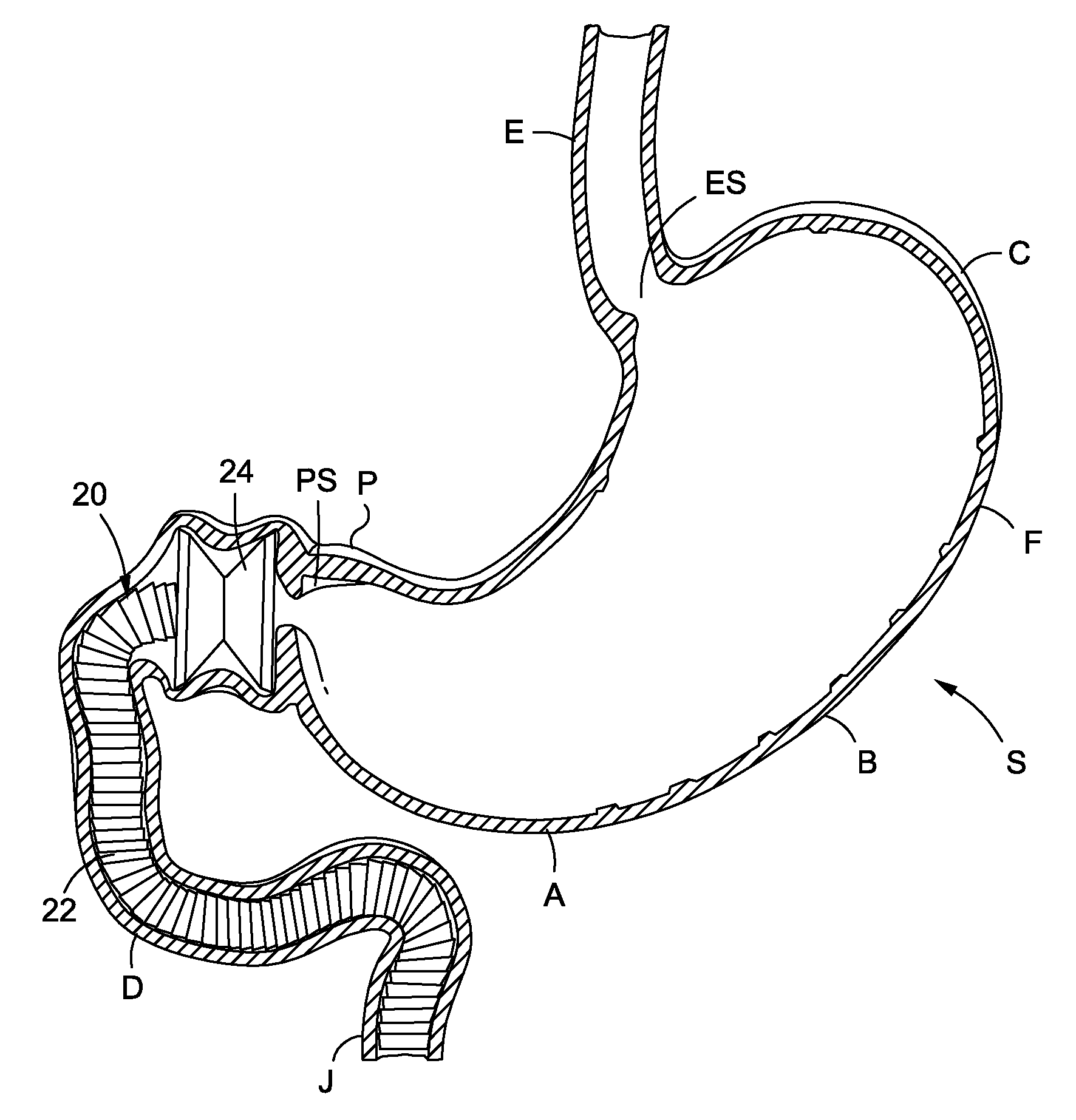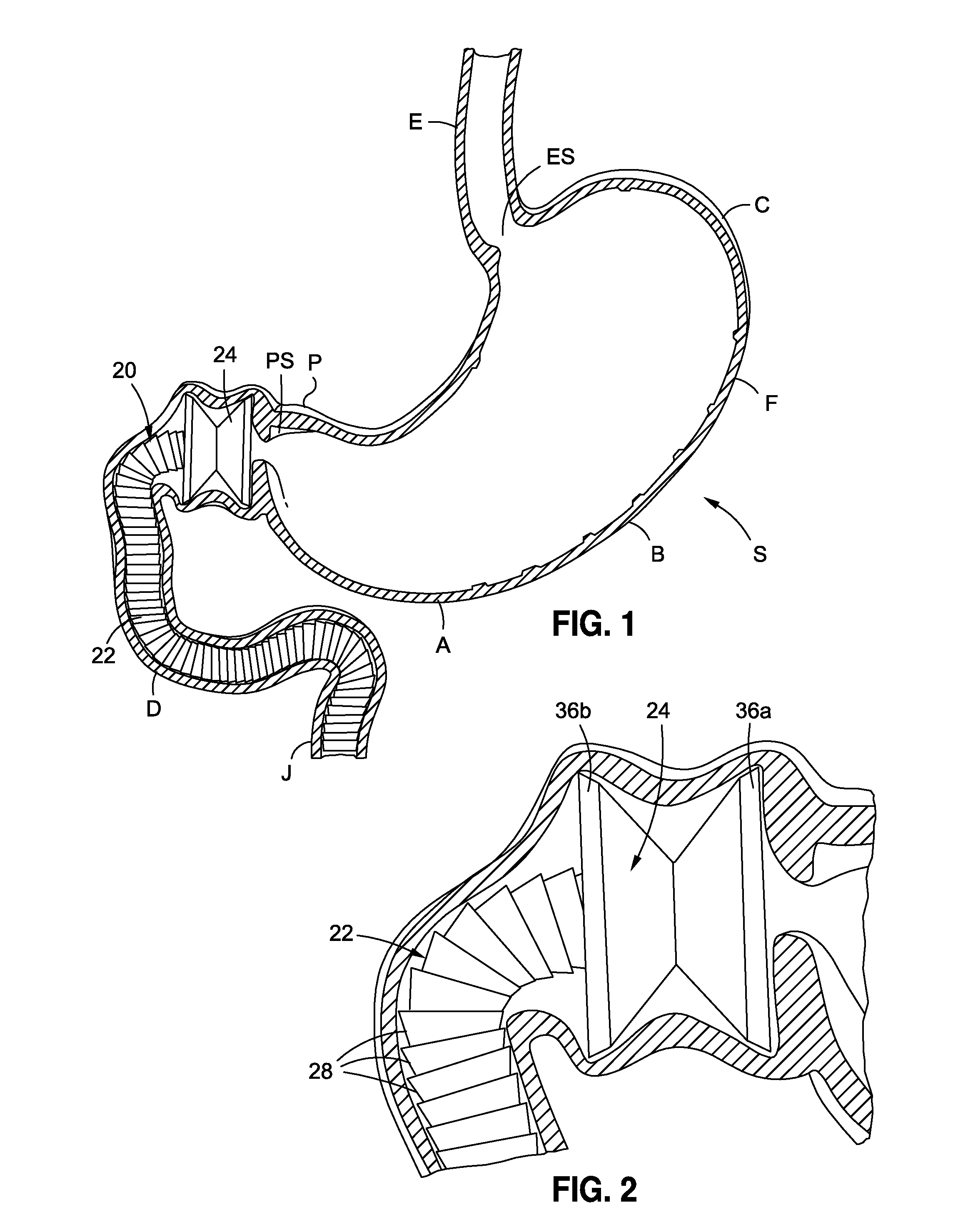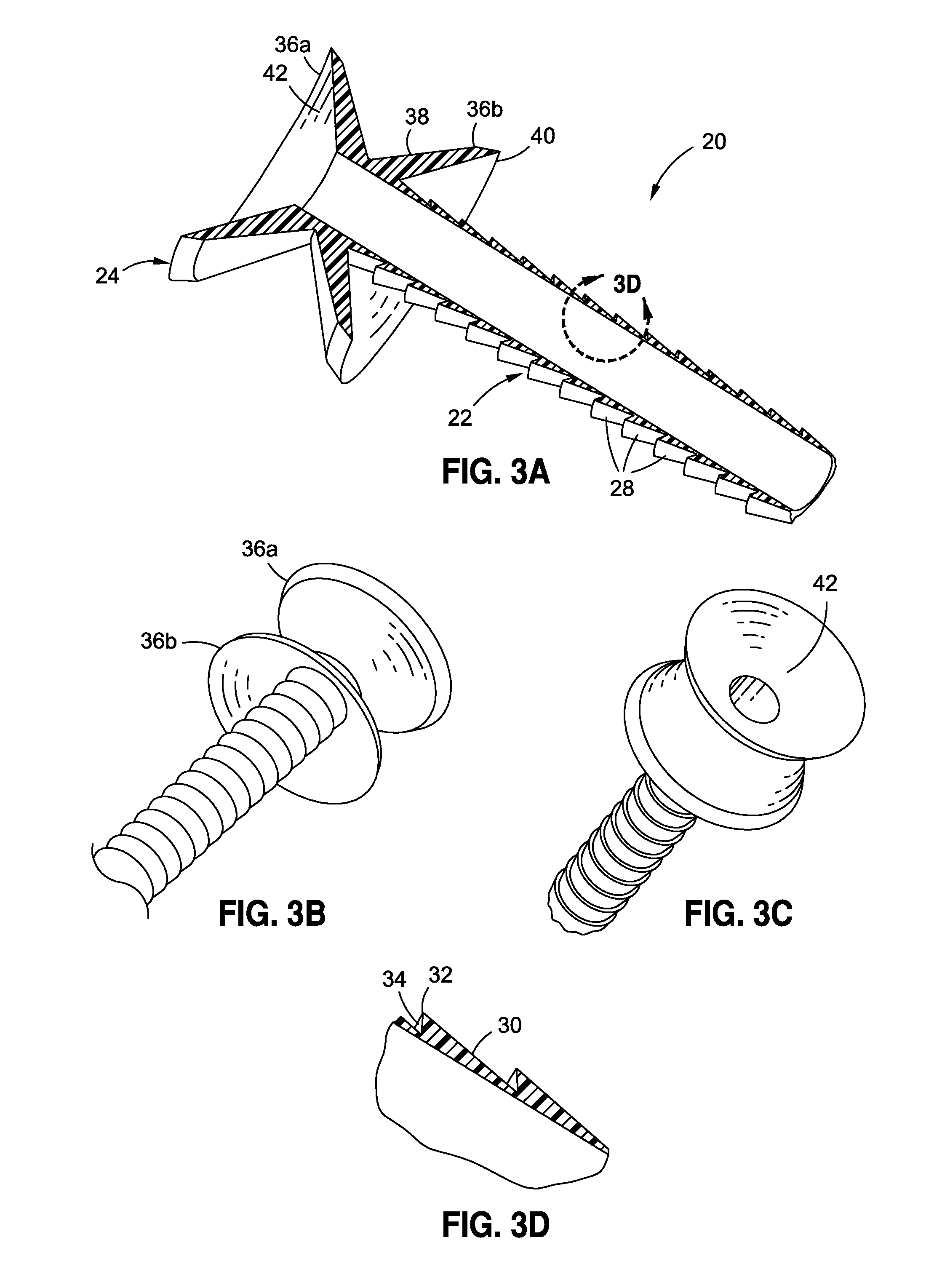Anchored non-piercing duodenal sleeve and delivery systems
a duodenal sleeve and anchored technology, applied in the field of duodenal sleeves, can solve the problems of not being able to keep weight, surgery might not be an option for every obese individual, etc., and achieve the effect of convenient removal
- Summary
- Abstract
- Description
- Claims
- Application Information
AI Technical Summary
Benefits of technology
Problems solved by technology
Method used
Image
Examples
Embodiment Construction
[0032]The present invention is directed to intragastric devices for passively treating obesity by limiting nutrient absorption / caloric assimilation. Furthermore, the exemplary device described herein may affect the rate of stomach emptying. The term “passive” refers primarily to a lack of any moving parts within the devices, but in general to the inert nature of the various devices.
[0033]FIG. 1 illustrates an exemplary intragastric obesity treatment implant 20, but also illustrates the anatomy of the human stomach, which will be described first. The major function of the stomach S is to temporarily store food and release it slowly into the duodenum D. The esophagus E extending downward from the mouth connects to the stomach via esophageal sphincter ES, which regulates flow food into the stomach cavity. The cardia C surrounds the superior opening of the stomach. The rounded portion superior to the body B and adjacent the cardia is the fundus F. Inferior to the fundus is the large cen...
PUM
 Login to View More
Login to View More Abstract
Description
Claims
Application Information
 Login to View More
Login to View More - R&D
- Intellectual Property
- Life Sciences
- Materials
- Tech Scout
- Unparalleled Data Quality
- Higher Quality Content
- 60% Fewer Hallucinations
Browse by: Latest US Patents, China's latest patents, Technical Efficacy Thesaurus, Application Domain, Technology Topic, Popular Technical Reports.
© 2025 PatSnap. All rights reserved.Legal|Privacy policy|Modern Slavery Act Transparency Statement|Sitemap|About US| Contact US: help@patsnap.com



